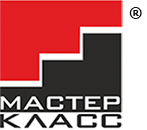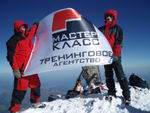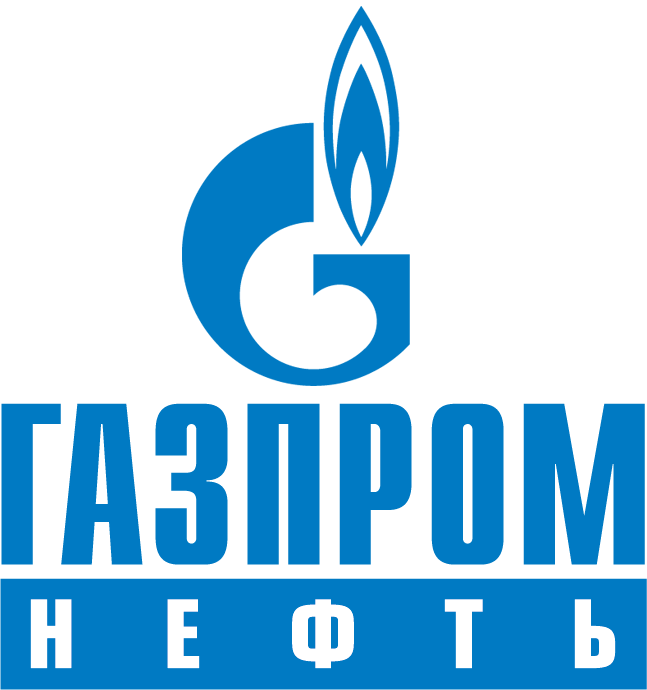Training of team formation in nature
- The advantages of carrying out training sessions outside the city in natural surrounding compared with working in a city office;
- The general scheme of effective team building training as carried out in nature;
- Special features that are related to working outside the city.
Currently economic conditions, industry and trading development are being stabilized in Russia and consequently new relationships between company workers, and between different business structures are appearing. Top managers of enterprises and organizations face the necessity of training and development of the staff and they especially need training programs aimed at forming effective teams. The stages of development of small-sized business in Russia are similar to the growing stages of a child. When a baby is born it is an absolutely unprotected and dependent on adult. A baby must demand what he needs to in order to survive and this will be supply by others. It is believed a child only learns passively in the first year. Likewise small business in Russia, during the first years of existence, (the Perestroyka period in late 80-s -early 90-s) was aggressive and looking for immediate profit, so a lot of one-day firms were born and soon died. The lack of accurate laws regulating business relationships was one of the reasons for this process and every day could be the last day for the firm and sometimes for the businessman as well. The main principle of business life at that time may be worded as "seize whatever comes to hand and we'll see what will happen later"
Later when a child is about 3 years old, it learns to perceive other people need, to share his belongings with others.
This stage can also be seen in small business. Towards the middle of 90-s competition became stronger. The most successful companies had already been present in the market several years. They realized that they needed to join hands at least for some time, and share profits and benefits. It was a period of increasing of specialization in the manufacturing and service sphere, the time disorganized groups and temporary unions.
At the age of 3 a child enters the socialization stage. He learns to reach agreements with other people, to take into their interests into account. A child learns that there are rules and restrictions that regulate relationships between people. He discovers that following the rules sometimes allows him to received the desired things and breaking the rules may result in punishment. But only later a child learns to cooperate with other people to get what he wants by means of helping others to achieve the things they need. At the moment Russian small business have entered growing up. Laws, which regulate this sphere are now appearing, as well as established companies. The market has already been divided and it is getting more difficult to find an available niche. A manager must first organize the work process of personnel and establish the process of manufacturing and sales. Then he must ensure the quality and efficiency of the work. He also needs to introduce stable, long-term relationships both inside the company and with clients and supplies.
To achieve stable development: firm, enterprise or organization needs to increase efficiency and to improve its abilities to compete and particularly constant care should be taken of how staff develop and in forming professional teams of like-minded people.
There are a many and various methods of team- building. One of them is forming an effective team through. Training carried out in nature makes positive developmental changes possible for a short period of time.
Every team is a group, but not every group is a team.
A real group is a community of people who behave objectively relations and welcome their belonging to the said same community. We share the definition given in literature that a team is a group of people who are united by three main ideas:
- Team members share mutual goals, tasks and intentions;
- Team members depend on each other, they need each other to achieve their goals;
- Team members believe that to achieve their goals they have to work together effectively.
One of the examples of a team may be our mutual work of training people. In the work the personal goals of every trainer are adjusted with the goals of the others, and the roles are given according to changing situations. We realize the advisability of mutually understandable activities for achieving our joint goals. We carry out the training of effective forming of a team both in office and in nature. In our opinion the following advantages of working outside:
- The solving of real problems in daily life support and overcoming physical difficulties ensure that the participants are highly involved in the training process;
- Gradually increasing the difficulties so that at first each task seems to be impossible to accomplish. This allows the participants to get specific experience of working together and how rest to achieve their mutual goals at physical level;
- Severe weather conditions and difficult natural landscape contribute to the strong emotional background of the participants during the training;
- Accomplishment of the set goals, overcoming difficulties, presented by nature, allows the participants to feel proud of themselves and of their team; it has a positive effect in forming a united team not only for the period of training but the effect stays even after the training is over;
- Unusual conditions and situations help to work out a creative problem solving approach. The training process of effective team formation carried out in nature employs the principle of gradually uniting participants: from individuals into pairs; from pairs to small groups; from small groups to a teams. Then a gradual increase of the number of people in subgroups make the tasks more complicated then follows increase of the range and perfecting of skills taking place in training.
The training consists of seven stages:
- Preparations.
- Introduction.
- The stage of individual achievements ("An individual in a group").
- Pair work ("Double opportunities").
- Uniting in groups of different size ("The power of consolidation").
- The stage of solving all-team tasks. ("A single body").
- The stage of summarizing the experience got in the training process, final testing.
The exact choice of exercises and tasks depends on the group, conditions of the training and the goals, which have been agreed with the client.
1. Initial preparation for the training of team formation varies according to the content but as a rule it takes from 3 to 6 hours. The purpose of this stage is to prepare the participants for the training and analyzing the initial state of the group as at the beginning of the training. The trainers' goal, at this stage, is to carry out interviews with the participants, to instruct them about safety precautions, and to carry out initial tests.
An interview is carried out with every team member. It is necessary to find out if health conditions allow the participant to take part in training in nature, if he/she has any restrictions for medical reasons that the trainers should take this into consideration. Also it is vital to help the participants to set personal goals for their training.
Introduction to safety measures mostly explains the rules that should be followed during the training sessions, how to behave in case of difficult weather conditions and recommendations concerning what clothes they should advisable take. At the end of the lecture on safety measures every participant sign the register confirming that he/she has listened to the explanation of the rules and agrees to follow them. Initial testing helps to profile the state of the group before training begins and helps organizers to estimate the skills and the potential of the participants for team work.
2. Introduction. The principle goal at this stage is to prepare group work. The trainers should create a friendly atmosphere in the group, relieve tension, and make the group members ready to work. Usually at the beginning of training the participants have worries and anxieties because the situation is not clear to them. Some of the participants are nervous and uneasy towards each other. So at this stage we introduce participants to each other, asking them to voice their expectations and fears connection with the forthcoming activities, set their own goals and set up warm up activities for the group. Participants and trainers' works out together on the rules of their work and word goals for the training and choose the means for the best feedback. Personal and interpersonal conflicts are usually indirect. Every stage of work includes summarizing personal and group experience that has been done. The exercises at this stage are focused on realizing of the importance of group solidarity, this helps to create motivation for further work. This stage is most often carried out in an office to be able to use a flipchart and to take notes that may be helpful in future and at the review stage. However in warm and dry weather you may choose to work outside.
3. The stage of individual achievements in a group. We named this stage "an individual in the group". Its goal is labialisation of the participants. The trainers' goal is to make the participants see the processes that take place in uncoordinated and disorganized group. The nature of exercises at this stage is for every participant to solve an individual problem, but the exercise is considered to be fulfilled only if every participant succeeds. As not everyone can reach the success at a first go, conflicts arise - group interests contradict the interests of some participants. Such situation may fuel personal and interpersonal conflicts. The participants demonstrate different types of behavior: neglect, aggression, adaptation, compromise, cooperation. Also they have the opportunity to experience their success through solving their personal tasks. Analysis of the exercises at this stage must be devoted to advantages and disadvantages of different strategies in conflict situations inside the group. This stage of training as well as the next three is carried out in nature despite the weather conditions.
4. Pair work stage. This stage has the name "Double opportunities". The goal of this stage is to expand participants` ideas of their abilities and bring them to realize of the importance of team works, enforce their motivation to cooperation. At this stage exercises and games are done in pairs. The trainers goal is to select tasks that cannot be done without confidence in the partner, mutual assistance and cooperation.. A group is not still united at this stage. Inside the group there are various likes and dislikes. We suggest that participants should pair with those whom for some reason they find it hard to cooperate. Working in such pairs helps the participants to work on interpersonal conflicts and improve relations in the group. Analysis of the exercises is focused on realizing potential benefits and losses when working in pairs. Participants get to know the advantages of working in pairs - increasing the opportunities to achieve the goals, pushing up the efficiency of work in an atmosphere of trust and openness. They also realize that when people unite to work together there may also be difficulties - it becomes necessary to take into account the opinions and requirements of others, give assistance and spend time on others.
5. The stage of work in small groups. We call this stage "The force of consolidation". The goal of this stage is forming and perfecting such group skills as assigning and changing of roles, carrying out discussions, reaching agreements etc. The trainers' goal at this stage is for group members to participate in various tasks easy and difficult, allowing them to show their worth in subgroups of different numbers and to try different roles.
Consolidation in groups is increasing throughout this stage. The participants are getting more friendly, open and ready to cooperate. The exercises help them to see which roles exist in the group and how they are distributed between the group members. The participants start to realize the difference between a group and a team, what each of them gets and looses when they unite. While playing games and making exercises the participants learn to react adequately to non-constructive behavior of other people and to correlate their expectations with real life of the group.
Analysis of the exercises should emphasize how the training experience can be applied in situations at work and in everyday life, how to use the knowledge that has become part of their daily life.
6. Team work stage. The work name of this stage is "A single team". The goal of the stage is to enable the participants to realize themselves as a part of a team which represents a single body. The trainers' goal is to make conditions for every participant to implement their team-working abilities and to realize further the efficiency of coordinated activities.
At this stage the group achieves a high level of cooperation, the participants are open and ready to cooperate. The exercises aim at training of cooperation and achieving of team goals, working out and following of team rules, realizing of the importance of team discipline. The team is perceived by the participants as a single body.
Analysis of the exercises follow every stage of team life, the events are repeated and emotional experiences too, analysis shows different ways to overcome problems that have appeared in the team work.
7. The stage of summarizing of the experience of the training. The goal of this stage is to sum up the experience received in the training. The trainers' goal is to help the participants formulate their conclusions about the efficiency of teamwork.
This stage allows the participants to realize that their goals as team members` change during the process of team development. The participants find that difficulties and conflicts are bound to appear when people come together, but an efficient team differs from a group in the ways it solves problems, also in the time and resources it allows for removing difficulties, etc.
Also this stage is devoted to feedback exchange between participants. Sometimes deferred feedback is used the training to be prolonged, to create emotional support and motivation for the participants to use in real working conditions the experience which they got in the training. At every stage of the training we use the six-step analyses scheme, that was suggested by Thiagi. Later we suggest that the participants should formulate the general conclusions for the whole group and emphasize the discoveries they made at every stage of the training and as a result of all training sessions. In our opinion at the training of team formation it is a real value for the participants as it allows further consolidation and expand the area of shared experience.
One particular feature of training sessions in nature is that the gradual advance to the goal is made not only during training sessions but also during the breaks, in evenings when training sessions are over. In this "free" time the participants get personal assignments which sets working independently. They ask the other people to help, arrange discussions on the topics in question, search and use available resources, cooperate and reach agreements about role distribution and coordination. During the breaks we ask the participants to answer two questionnaires: "Role Distribution in the Team" and "Dedication to the Team". We believe that two tests are quite enough, as the participants should have time to communicate.
If weather conditions allow we make video recordings of the exercises. At the end of each stage we analyze the recordings. It helps if the participants see the teamwork from the position of an outsider, to realize their role in the team and possibly to find other ways to solve the same problem.
There are also other special features in training sessions in nature, that influence the whole training process and require the serious attention of the trainers:
Weather conditions have great influence on the time and success of the offered exercises. There are situations when the participants are unable to accomplish the exercises due to weather conditions. That is why we usually prepare several alternative programs and variants for discussion, and it contributes in moral support and creation of positive spirit of the participants.
- Work in nature is connected with light part of the day, it also should be taken into account by trainers.
- Audio and video equipment may be difficult to use due to various weather conditions.
- The participants cannot always take notes. Besides there are some restrictions on using of video aids and handling material.
- Training in nature requires certain physical stamina, so while working out the program trainers should pay much attention to the age and health conditions of the participants.
- Sometimes the participants see the training as a kind of outing or picnic. To prevent this the trainers introduce a number of rules and regulations for example smoking and alcohol drinking banning for the whole period of training and so on. Outside training is a very busy sort of activity not only from emotional and information point of view but also physically. So the trainers should keep under control what is going on with the participants, how they cope with the load and get into the material and if necessary to change and adopt the training program.
- Not all the exercises are universal for any landscape, so the trainers have to pay particular attention to adaptation of the training to certain weather conditions, that sometimes hard to forecast. The choice of the original place of the training (forest, ship, cave etc.) and the use of special equipment (for example climbing equipment or paintball outfit) add romantic color to the activity and entertain the participants, but they do not determine the result. The efficiency of the training is ensured first of all by deep analysis of the exercises and the training as a whole.
The necessary theoretical part is introduced as a summary of the experience as received from the exercises. Such an approach enables the participants to look upon the theoretical themes as their own discoveries, and enhance the probability of applying the received information in their work and everyday life. Part of the theory is received as a handling material relevant to the context of the training.
To be in a successfully trained team that can accomplish their goals is exhilarating for members encourages their further work.
Such training as "Influence and Counteracting Other People Influence", "Leadership and Management" are also carried out in nature. In our opinion carrying out training in nature has had promising results and has wide opportunities for development..
Julia Karpova, Nina Nemchinova, Alexey Sergeev.
Literature
- Галкина Т.П. Социология управления: от группы к команде: Учеб. пособие. - М.: Финансы и статистика, 2001.
- Паркер Г., Кропп Р. Формирование команды: Сборник упражнений для тренеров. - СПб.: Питер, 2002.
- Немичева Н.Н. Игры на деньги и интерактивные лекции для активных методов обучения. - СПб.: Изд-во С.-Петерб.ун-та, 2002.
- Эрик Берн. ЛИДЕР И ГРУППА. О структуре и динамике организаций и групп. - Екатеринбург: Изд-во "Литур", 2000.
- Кларин М.В. Корпоративный тренинг от А до Я: Научн.-практ. Пособие. - М.: Дело, 2000.
- Дафт Р. Организации. Учебник для психологов и экономистов. - СПб.: прайм-ЕВРОЗНАК, 2001.
- Фопель К. Сплочённость и толерантность в группе. Психологические игры и упражнения. Пер. с нем. - М.: Генезис, 2002.












